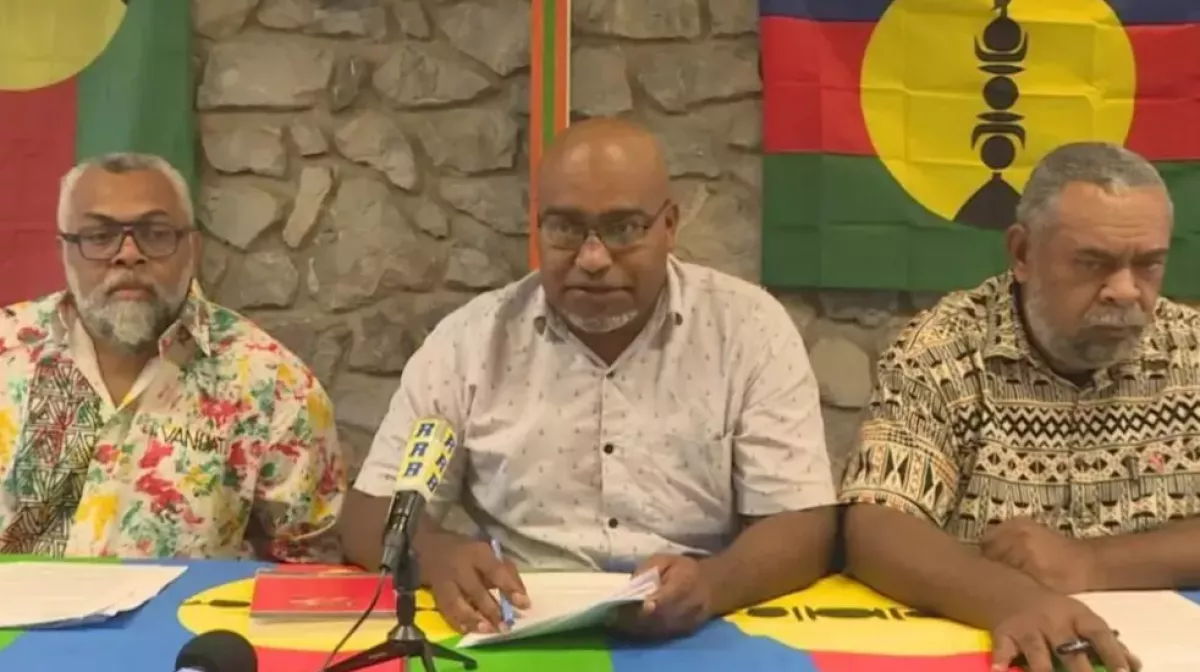Kanak leaders vs. Macron: Only full sovereignty Foreign media roundup by Caliber.Az
In its deep-dive analysis, The Diplomat shines a spotlight on the Bougival Accord, the latest and most fragile attempt to resolve New Caledonia’s long-standing political limbo. Named after the quiet French town where the final talks took place, the agreement proposes to transform the Pacific archipelago into a state within the French Republic — but not an independent one.
Yet, as The Diplomat aptly underscores, the ink on the accord is hardly dry. Before it can take effect, the deal must clear multiple hurdles: a referendum in 2026, approval from the French Parliament, and a constitutional revision. Even then, public trust — especially among the Indigenous Kanak population — remains a major obstacle.
The article lays bare the political fissures running through New Caledonia, tracing them back to the disputed 2021 referendum that was boycotted by pro-independence forces due to the COVID-19 crisis and France’s refusal to delay the vote. The result: a hollow 96% rejection of independence on a mere 44% turnout — a process many Kanaks and regional actors, such as the Pacific Islands Forum, view as illegitimate.

The Diplomat points out that while the Bougival Accord is a rare compromise between bitterly divided factions, it comes at a cost. The agreement includes concessions on electoral reform, partial transfer of sovereign powers, and the controversial creation of a dual New Caledonian-French nationality — all likely to spark friction from both sides.
Equally telling is France’s role. The article criticises Paris for heavy-handedness in recent years, particularly during the violent protests of 2023, which left 14 dead and over 2,000 arrested. Attempts to unilaterally alter the electoral roll further eroded Kanak trust. While Macron’s government blames "outside influences," The Diplomat argues that the roots lie in deep colonial legacies and unresolved inequalities.
Looking ahead, experts quoted in the piece — such as journalist Nic Maclellan and former Australian diplomat Denise Fisher — warn that even if the accord is ratified, the road to political stability is long. Issues like foreign affairs, trade, and West Papua’s status will continue to test the limits of autonomy under French oversight.
And while Paris insists that the Bougival model applies only to New Caledonia, The Diplomat hints at wider implications for France’s overseas territories — from French Polynesia to the Caribbean.
In essence, the Bougival Accord may offer a framework for coexistence, but not closure. For many Kanaks, it’s not an endpoint — it’s a waystation on the journey to sovereignty.

Meanwhile, the French international radio station RFI reported that the Caledonian Union (UC) party has announced it will not support the agreement signed on July 12 in Bougival. UC leadership — the main force within the Kanak and Socialist National Liberation Front (FLNKS) — concluded that the agreement does not align with the fundamental principles of decolonisation.
“What’s laid out in the agreement merely reflects the stance of the loyalists and republicans,” UC leader Emmanuel Tjibaou told journalists at a press conference in Nouméa. “The proposals we submitted and discussed weren’t taken into account. So where are our ideas? That question needs to be put to the French State.”
Calling for a return to the negotiating table, UC criticised the renewed intervention by French President Emmanuel Macron, warning that it had only deepened the current deadlock.
“You can’t force this through,” said UC General Commissioner Christian Tein, urging for “calm and constructive discussions.”
The party’s vice-president, Mickaël Forrest, echoed this sentiment, stating: “An agreement that excludes the liberation movement holds no meaning.”
Finally, the Caledonian Union has announced plans to hold an extraordinary FLNKS congress on August 9 in La Conception, near Nouméa. The meeting is expected to define a unified stance and outline the next steps in the independence movement.
By Vugar Khalilov








